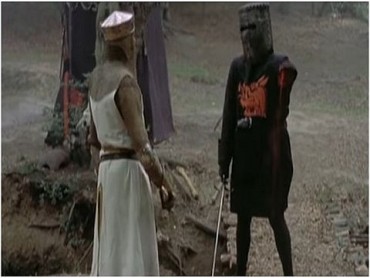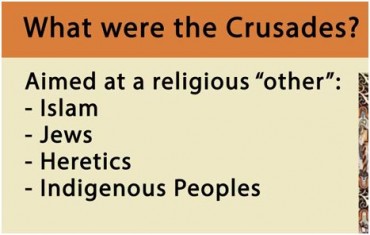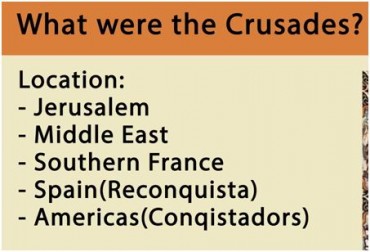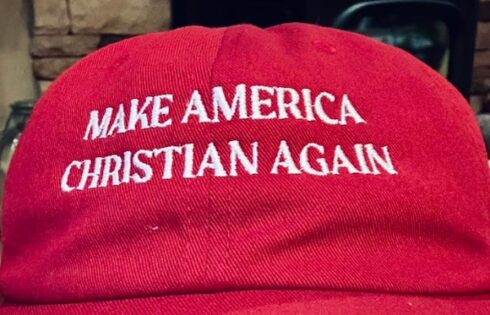
The past two weekends The College Fix has chronicled the tale of how Susquehanna University “had” to change its nickname (and mascot — again) due to the ever-present college issues of “sensitivity” and “inclusion.”
A mere two weeks ago, the school’s president, L. Jay Lemons, took to the pages of the Philadelphia Inquirer to discuss the potential of ditching his institution’s name “Crusaders,” and to lambaste those who believe the whole effort is yet another exercise in political correctness.
A week later, boom — the issue was resolved: The school’s Board of Trustees went along with Lemons’ recommendation and voted to scrap both the “Crusader” nickname and its rather inoffensive mascot, a tiger in a maroon cape.
In his Inquirer op-ed, Lemons did his best to appear as some sort of neutral arbiter, just “journeying around the community” to facilitate discussions on the issue.
Here’s the video put out by Lemons and other university officials used to “help” people understand the issue. Is it unbiased?
In the presentation, President Lemons notes that they “are hosting nine conversations” about the school name/mascot, and that the video is for the benefit of those who cannot attend.
In those nine meetings, by the way, a grand total of 300 people took part.
The video features Dean of Faculty Linda McMillin, also a history professor, who offers a critique of the Crusades (and crusaders) from a historical context. Here are some highlights:


“Making a name for one’s self through military conquest … the Crusades offered such an opportunity for both wealth and glory,” McMillin says.
About the only explicitly positive aspect about the Crusades the professor mentions is that they were important to the rise of capitalism and trade. (A big “if,” of course — in a modern college setting, is capitalism really viewed positively?)
But right after that statement McMillin adds, “However, not all outcomes of the Crusades were positive” … as if we’re to take from the video that targeting “the other” and aligning the Crusades with Spanish conquistadors is a “positive.” (Note the correct spelling of “conquistador,” by the way; the plural in Spanish is actually conquistadores.)
Interestingly, one of McMillin’s “personal observations” is that prior to September 11, 2001, opinions about the school nickname ranged from “enthusiasm to indifference.” However, after, there was a greater concern about “Crusader” due to the sensitivities of Muslim and Jewish students.
So, just to be clear: The US is attacked by Muslim radicals and almost 3,000 Americans are killed … and this led to an increased concern over Muslim (and Jewish?) students’ sensibilities?
Lemons’ craftily worded op-ed in the Inquirer is dated October 22 … but a mere day later the conclusion is reached: Here’s the October 23 letter from Lemons to the Board of Trustees where it’s his recommendation to change the name and mascot.
It became clear to me early on in the process that it is unreasonable and untenable to continue to be ambivalent about being the Crusaders. We either need to embrace Crusaders or move to change; and there are reasonable arguments that can be made for either direction. Your charge for me was to engage a process and to render a recommendation. Please know that as I have sought discernment on this matter, I have given it my full attention, thinking always about what will serve Susquehanna’s interests best in the years ahead.
I am recommending that the best path forward is for Susquehanna to seek a new nickname and corresponding mascot that can be developed over time as assets.
And so it is.
But there has been blow-back: A Change.org petition against changing “Crusader” was begun, and at this moment it has over 2,150 signatures.
There is now also a Facebook page devoted to maintaining the old nickname, “Crusaders for Crusaders.” On it, Susquehanna alumna and former adjunct faculty member Kathy (Pioli) Lubbers has posted a response to President Lemons’ decision to discard “Crusader.”
Out of the approximately 1,300 individuals you heard from as referenced earlier in your letter, only “slightly more than half” were in favor of retaining the Crusader name. However, the past several days have shown results contrary to this statement. Within the first 12 hours of the creation of a change.org petition to retain the name, we exceeded that number in people who were in support of the petition alone. At the time of this writing, the petition is rapidly nearing 2,000 supporters, and is still growing. A newly-created Facebook page received hundreds of “likes” in a matter of hours in support of the retention of the name. Social media pages that had already been in existence (e.g. the Susquehanna University official Facebook page, “You Know You Attended Susquehanna University if…” Facebook page, etc.) contain hundreds of comments that clearly show the overwhelming majority to be in favor of keeping the Crusader name.
Lubbers also points out that “[w]e should not become prisoners to an antiquated and former meaning of a word,” and notes that the term “Samaritan” was once a term for someone considered evil.
“And over time […] the word evolved to become something commonly used today in reference to someone who is noble and good, and performs good deeds without thought of themselves,” she writes.
“Can you imagine a person today being offended because someone called them a Good Samaritan?”
Ms. Lubbers has yet to hear back from Lemons.
Like The College Fix on Facebook / Follow us on Twitter
IMAGES: YouTube






Please join the conversation about our stories on Facebook, Twitter, Instagram, Reddit, MeWe, Rumble, Gab, Minds and Gettr.